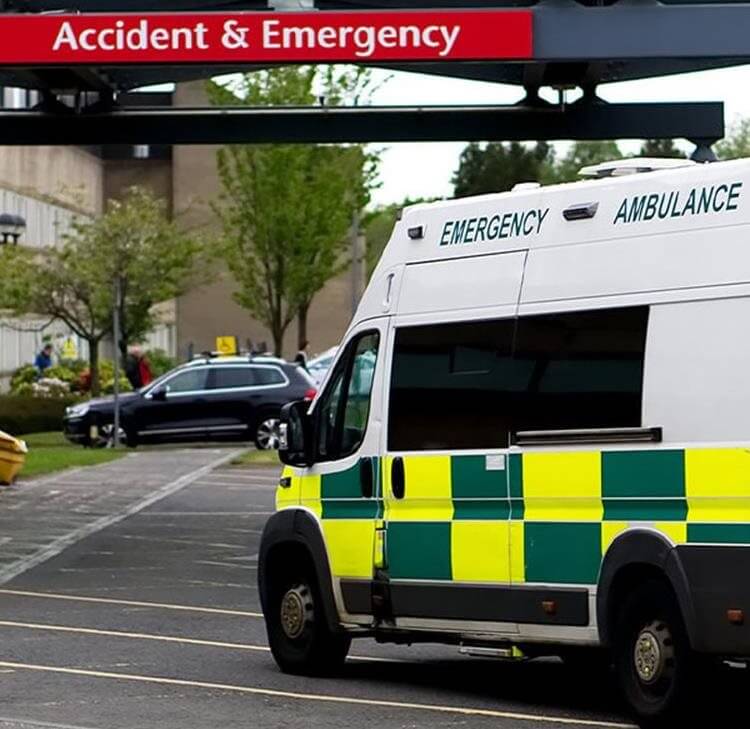Integrated Care Boards and preventing NHS fraud – what you need to know and how to achieve it
On 7 July this year, NHS England published its statutory guidance for Integrated Care Boards (ICBs) and with it set out the ICBs’ role and responsibilities and how they should collaborate, interact and carry out their anti-fraud, bribery and corruption functions in concert with NHS England.
Background
On 7 July this year, NHS England published its statutory guidance for Integrated Care Boards (ICBs) and with it set out the ICBs’ role and responsibilities and how they should collaborate, interact and carry out their anti-fraud, bribery and corruption functions in concert with NHS England.
The aim appears to be to help deliver greater consistency of approach in a broader government-led counter fraud strategy to prevent fraud, protect resources, and detect and minimise irregularities and losses. Whilst the passage of the past two months will have allowed many to embed these processes and requirements, it is timely to reflect on how detailed and potentially onerous these requirements can be. This article seeks to demystify the process and assist in understanding what the expectations are.
With each ICB directly accountable to NHS England for NHS spend and performance, the delegation of the policing of fraud is a key shift from the approaches adopted by clinical commissioning groups (CCGs) prior to the Health and Care Act 2022. Then, policy, audit and investigatory functions through NHS Local Counter Fraud Specialists (LCFS) within the CCG were much simpler and supplemented by the independent prosecuting authority, NHS Counter Fraud Authority (NHSCFA).
The responsibilities and requirements
The formality and rigour of the new standards by which the ICBs will be required to provide assurance, reflects a greater professionalisation of the Counter Fraud function within the Government, through the Cabinet office and now as disseminated throughout NHS funded organisations. The key headline features of the guidance are:
- NHS England is responsible for ensuring that appropriate counter fraud measures are in place
- ICBs will need to be able to demonstrate compliance with the Government Functional Standard Government Functional Standard 013 Counter Fraud (GovS013) and provide returns, which will be reviewed by NHSCFA
- although ICBs will be commissioners for primary care locally, NHS England will retain overall accountability including investigation of economic crime in primary care services and all such fraud concerns are to be reported directly to NHS England. Where ICBs have contracted directly, investigations will then sit with ICB unless complexity requires a joint approach
- all other areas require ICBs are to have suitable counter fraud and investigative functions
- ICBs can obtain support from NHS Business Services Authority (NHSBSA)(via NHS England) to obtain assurances about contractors to primary care
All NHS bodies including ICBs are required to comply with GovS013 and specifically the NHS requirements. These should provide the main pillars of ICBs counter fraud strategy, both from a board perspective as well as operational in prevention and staff awareness; and guidance on engaging with NHSCFA. Performance guidance is being judged illustratively by traffic light assessment ranging from green to red (meeting, to not meeting the requirements). The guidance is worth a detailed read to understand the governance (including board appointment of a designated executive board member for counter fraud bribery and corruption with a defined role) is an important feature of the new programme. It allows ICBs to demonstrate board level engagement and compliance. Maintaining fraud metrics (through audit committee minutes and NHS Benchmarking Network) and demonstrating the effectiveness of the counter fraud plan as a board agenda item in minutes with action points followed up, is expected to provide suitable reassurance.
Underpinning this will be a co-ordinated researched and frequently reviewed strategy document – which is based on a current risk assessment to understand and mitigate risks, ongoing staff awareness and training plans and clear reporting guidelines, allocation of resources and evidence of suitable response plan and corrective actions (if required).
Implementation
Day to day implementation of the strategy should form part of the ICB culture. The action plan can be handled by the audit committee as part of its annual plan and objectives. Their ongoing work should allow ICBs to demonstrate a risk-based approach to monitoring, and suitability of the agreed strategy against national benchmarks available through the NHS fraud case management system. This includes looking at detection activity to look for anomalies and irregularities in high-risk areas. Recording and being able to show reporting of incidents, value of potential losses (and recoveries), as well as criminal or disciplinary sanctions are helpful in measuring progress.
Staff, contractors and the public also need to be made aware of the organisation’s approach to counter fraud, corruption and bribery. The policy for reporting whether through NHSCFA’s online reporting tool, hotline, or internally needs to be well publicised and staff should be able to demonstrate their knowledge of how to respond appropriately. Ongoing awareness training should not be solely limited to the issue of fraud, bribery and corruption, but should also include demonstrating the effectiveness of further policies around gifts and hospitality, and conflicts of interest.
Where fraud is identified, ICBs need to consider whether this falls within NHSCFS acceptance criteria, whether to engage expert professional input from NHS accredited LCFS to investigate and preserve evidence; and how to report to NHSCFA and the NHS case management system. Timeliness of reporting is important as it provides useful intelligence on a national level and helps inform further activities around improvements in prevention methodologies.
Reporting to the centre has special significance as the NHSCFA retains a significant role in investigations – as set out in the Secretary of State Directions – including powers of access to premises, to staff and contractors, as well as documents and information (in digital form or otherwise) to permit it to progress its counter fraud functions and investigations.
The guidance does not pull any punches in its assessment of the challenges or the complexities that managing an investigation involves. This is especially the case where primary care and contractors are concerned. It is important to understand that NHS England retains overall responsibility for investigations of allegations of economic crime but that directly commissioned services by ICBs are to be investigated by them. Whilst not clear on the division of labour, it is assumed that reporting to NHS England is paramount and that any additional considerations such as a joint approach may come into play depending on complexity.
The ICB does not lose any of its independence when confronted with fraud in procurements of services, with employees (for instance in payroll) or patient fraud (such as Personal Health Budgets (PHBs)) and is likely to take the lead role in investigations after consultation with the LCFS and other stakeholders affected by the fraud.
Beyond this wide-ranging change of brief, relatively good news comes for ICBs in the form of additional support offered by the NHS BSA), to help with legal and regulatory obligations around commissioning for and managing primary care contracts. This is envisaged to assist with contract compliance and performance, targeted interventions and collaborating with ICBs to implement corrective action.
Reviewing your strategy
Wherever you may be on the journey to implement your strategy to prevent fraud, reviewing the guidance and reflecting on the requirements, even at this time, will help refresh the plan to build a robust prevention model.
Also do not forget you are not alone. Collaboration is the key to defeating fraud. As counter fraud practitioners we recognise the complexities around such policy implementation both at Board and staff level. The mood music is generally supportive – and NHS England, NHSCFA, NHSBSA are there to help.
If you would like to discuss any of the issues raised in this article, please contact Paul Wainwright.
Contact

Paul Wainwright
Partner
paul.wainwright@brownejacobson.com
+44 (0)121 237 4577








































